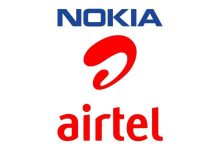MTN Mobile Money in E-Commerce: Case Study

MTN Mobile Money (MoMo) is transforming e-commerce in Africa by providing accessible digital payment solutions. With over 69.1 million active users across 16 countries, MoMo enables seamless transactions for both merchants and consumers, especially in areas with limited banking infrastructure. The platform supports features like C2B payments, B2B transactions, and a Virtual Mastercard, making online shopping easier and more secure.
A key success story is Lusuku, a Ugandan SME, which solved cash handling issues by integrating MoMo’s API. This improved payment accuracy, boosted customer trust, and increased revenue. Challenges like network coverage and fraud risks remain, but MoMo’s innovations continue to drive financial inclusion and e-commerce growth in Africa.
Key Stats:
- Africa’s e-commerce market: $39.44 billion by 2025
- MoMo transactions in 2022: 13.4 billion worth $221.3 billion
- Mobile money accounts in Africa (2023): 856 million
MTN’s partnership with Mastercard and its growing API ecosystem are pivotal in expanding digital payments, fostering trust, and enabling SMEs to thrive in the online economy.
How MTN Mobile Money Works for Online Transactions
As Africa’s e-commerce sector continues to grow, MTN Mobile Money has become a key player in facilitating smooth financial transactions. This service transforms any mobile phone into a digital wallet, allowing users to store money and make transactions without needing a traditional bank account. To get started, users deposit cash with authorized agents, which is then converted into digital currency stored on their phones. The platform operates on a basic USSD system, ensuring accessibility even for users with basic phones in areas where smartphone penetration is low. These features make it a reliable tool for online transactions.
Core Features of MTN Mobile Money
MTN Mobile Money comes with a variety of features tailored for e-commerce:
- Customer-to-Business (C2B) Payments: Shoppers can pay merchants directly from their mobile wallets, and payments are confirmed instantly.
- Business-to-Business (B2B) Transactions: The platform supports seamless payments between businesses, such as suppliers and partners.
- Bulk Payments: It handles large-scale disbursements, like salaries, commissions, or refunds.
- Collections Tool: Merchants can efficiently gather payments from multiple customers, especially during high-demand periods like sales or promotions.
- QR Code Payments: Customers can complete transactions quickly by scanning a QR code.
Another standout feature is the Virtual Card, developed in partnership with Mastercard. This allows users to make online purchases on any platform that accepts card payments – without needing a physical card.
“The Virtual Card by MoMo is a major milestone in our journey towards MTN’s Ambition 2025, which focuses on promoting financial inclusion and economic empowerment across Africa. By offering a secure and convenient way to access online services, we enable our customers to engage more actively in the digital economy. This new product underscores our dedication to innovation and excellence in the digital financial sector.”
– Jemima Kariuki Njuguna, Chief Product Officer at MTN MoMo
MTN has also expanded its MoMo API platform from 5 APIs in 2018 to 30 APIs by 2022. This growth has empowered over 24,000 developers to create new solutions, processing more than 338 million transactions through 1,600 live partners. A notable example of its capabilities occurred during the Liberia Marathon in August 2022, where developers used MoMo Open APIs to integrate MTN Mobile Money with Facebook Messenger. This allowed participants to register and pay their fees directly through their MoMo wallets.
Benefits of Using MTN Mobile Money for E-Commerce
The platform’s technical features bring clear advantages for both merchants and consumers. Transactions are secured with strong encryption and authentication, reducing the risk of fraud. By eliminating cash handling, businesses can avoid counting errors, theft, and reconciliation issues, which helps lower costs and streamline operations. For merchants, MTN Mobile Money opens doors to new customers, particularly in rural areas where banking services are limited. Instant payment processing also improves cash flow by removing the delays often associated with traditional methods.
The service goes beyond just payment processing. For instance, the Market by MoMo platform integrates seamlessly with MTN Mobile Money, creating a broader e-commerce ecosystem. Its cost efficiency benefits both merchants and consumers alike. With availability in 16 African countries and support from 1.3 million agents and 1.5 million merchants, the platform serves over 69.1 million active users.
The numbers highlight its impact. In 2022, MTN Mobile Money processed 13.4 billion transactions worth $221.3 billion. In Uganda alone, mobile money transactions reached Shs 191 trillion in the 12 months leading up to June 2023, a 23% increase from the previous year’s Shs 156 trillion.
Case Study: How Lusuku Used MTN Mobile Money for E-Commerce Success
Lusuku, a Ugandan SME founded by Medhi Matovu, offers a compelling example of how MTN Mobile Money can reshape e-commerce operations. Before adopting this technology, the company struggled with inefficiencies tied to cash-on-delivery payments, which hampered its growth and strained customer relationships.
Lusuku’s Payment Challenges Before MTN Mobile Money
Prior to April 2024, Lusuku relied heavily on cash-on-delivery transactions. While this method seemed straightforward, it created significant problems. Payments were often lost, manual reconciliation was time-consuming, and trust between the business and its customers began to erode.
“Before integrating the MoMo API, we encountered challenges with cash transactions, including cases where drivers disappeared with funds. The API transformed our payment process, making it seamless and secure. Now, our drivers only focus on delivering products, while the API takes care of the monetary transactions.” – Medhi Matovu, Entrepreneur from Uganda
These issues forced the team to spend valuable time tracking payments instead of focusing on growing the business. To tackle these problems, Lusuku turned to MTN Mobile Money’s API platform.
How Lusuku Integrated MTN Mobile Money
Lusuku began its journey by leveraging MTN’s Mobile Money Open API platform, introduced in Uganda in November 2018. This platform allows businesses free access to MTN’s payment infrastructure, enabling them to craft tailored payment solutions.
The process started with Lusuku registering on the MoMo Developer Portal and activating its business subscription. Using the Postman sandbox, the team tested various API configurations, simulating payment scenarios without affecting actual transactions. Once testing was complete, Lusuku shared its results with MTN’s MoMo team. After verification, the company received production credentials and conducted final tests before fully deploying the system.
Results and Business Impact for Lusuku
The results of the integration were transformative. The API removed the need for cash handling, allowing drivers to focus solely on deliveries. Digital transactions streamlined payment processes, increasing both speed and accuracy. This shift not only reduced losses but also built trust with customers, which led to higher conversion rates and a noticeable increase in repeat business.
Customers appreciated the convenience and transparency of digital payments, which further strengthened their loyalty. For Lusuku, this translated into higher revenue and a significant reduction in the losses previously caused by mishandled cash.
Lusuku’s achievements highlight the broader success of MTN’s innovation efforts. By 2022, the MoMo Open API platform had attracted over 24,000 developers and facilitated more than 338 million financial transactions.
sbb-itb-dd089af
Benefits for Merchants and Consumers
The case study of Lusuku highlights how MTN Mobile Money (MoMo) delivers value to both merchants and consumers, particularly in the realm of e-commerce. Let’s explore the specific benefits for each group.
How MTN Mobile Money Helps Merchants
Simplified Payment Processing
MTN MoMo allows merchants to handle payments quickly and efficiently. Unlike traditional payment methods that often involve lengthy verification steps, MoMo enables direct transactions without additional transaction fees.
Lower Cart Abandonment Rates
By integrating MTN MoMo as a payment option, merchants can reduce cart abandonment. Customers are more likely to complete their purchases when they see a familiar and trusted payment method, as demonstrated by Lusuku’s improved conversion rates.
Improved Operational Efficiency
The MoMo API makes it easy for small and medium-sized enterprises (SMEs) to integrate mobile payments into apps and point-of-sale systems. This streamlines business processes and opens up new operational possibilities.
Enhanced Security and Accuracy
Digital payments eliminate the risks associated with cash, such as loss or theft, while also providing accurate transaction records. This builds trust between merchants and their customers.
Opportunities for Growth
In Africa, SMEs account for about 80% of the workforce. Mobile money integration is a key driver of growth for these businesses. Features like the MoMo API’s collection widget allow customers to make payments effortlessly by scanning a QR code, further enhancing the customer experience.
How MTN Mobile Money Helps Consumers
While merchants benefit from operational improvements, consumers experience a range of advantages that make their shopping and financial management easier.
Convenient Payments
MTN MoMo functions as a mobile wallet, enabling instant checkouts without the hassles of cash handling. This eliminates concerns about carrying cash or having exact change.
Secure Money Management
Consumers can store their money digitally, providing a safer alternative to traditional banking and reducing the risk of theft or loss.
Clear Transaction Records
Digital payments create a transparent record of every transaction, helping consumers track their spending and verify purchases. This transparency reduces disputes and enhances confidence in the payment system.
Hassle-Free Transactions
The simplicity of MoMo payments – without the need for extensive verification processes – improves the shopping experience and leads to higher satisfaction and loyalty compared to cash transactions.
Financial Access for the Unbanked
MTN MoMo empowers individuals without traditional bank accounts to participate in e-commerce, opening up new opportunities for financial inclusion.
Pros and Cons Comparison
| Aspect | Advantages | Limitations |
|---|---|---|
| For Merchants | No transaction fees, reduced cart abandonment, better efficiency, secure transactions | Limited rural coverage, reliance on mobile network quality, technical integration requirements |
| For Consumers | Convenient payments, secure money storage, clear transaction records, financial accessibility | Poor network coverage in some areas, fraud concerns, cost of mobile devices and data plans |
| Technical | Fast payment processing, flexible API integration, detailed documentation | Interoperability issues between providers, challenges in remote regions |
| Financial | Affordable for merchants, accessible to unbanked users | Lack of financial literacy can lead to mistrust, potential data costs for users |
Addressing Challenges
While MTN MoMo offers numerous benefits, some challenges remain. Rural areas often face poor mobile network coverage, creating barriers for both merchants and consumers. Security concerns and the risk of fraud can also undermine user confidence. Additionally, the high cost of mobile devices and data plans can limit access for low-income users.
Despite these hurdles, the platform’s widespread adoption underscores its value. Nearly 80% of mobile money providers report that customer fees drive the majority of their revenue. By focusing on better infrastructure, user education, and innovative solutions, MTN MoMo can continue to expand financial inclusion while ensuring security and convenience for all.
Common Problems and Solutions
Building on Lusuku’s success, businesses venturing into MTN Mobile Money integration often encounter a range of challenges. These include technical, security, and operational issues that can affect the success of deployment. Understanding these challenges – and how to address them – can set businesses up for smoother implementation.
Typical Integration Problems
Technical Compatibility Issues
One frequent hurdle is ensuring that e-commerce platforms work seamlessly with MTN Mobile Money’s API system. The MoMo API, which operates as a JSON REST API, requires specific configurations. Many businesses face difficulties with version compatibility between their platforms and available plugins.
For example, in June 2025, Meetanshi Inc. updated its Magento 2 extension to resolve compatibility issues. This highlights the importance of regularly checking for updates and maintaining compatibility. After tackling technical concerns, businesses must also focus on safeguarding against fraud.
Security Vulnerabilities and Fraud Concerns
Security is a major concern for businesses adopting mobile money solutions. In Ghana, cyber fraud cost citizens GH₵4.4 million in the first quarter of 2025 – double the amount recorded the previous year. According to the Bank of Ghana‘s 2023 financial stability review, there were 13,451 fraud cases in the financial sector, with mobile money scams making up 20% (2,700 cases). Alarmingly, over half of financial fraud cases involved employees within financial institutions.
“Fraud erodes customer trust and discourages enterprises from accepting mobile payments due to security concerns. This reluctance inconveniences consumers and has negative economic consequences.” – Dr. Paul Appia Kunadu, Financial and Economic Analyst
Fraud tactics range from phishing and social engineering to malware attacks and SQL injection. These issues not only expose businesses to financial losses but also damage customer trust, making onboarding more difficult.
Customer Onboarding and Trust Issues
Consumers often hesitate to use mobile money due to concerns about security or unfamiliarity with the platform. This hesitation can lead to abandoned transactions, directly impacting sales and business performance.
Regulatory Compliance Requirements
Navigating complex regulatory frameworks – such as PCI compliance standards and local financial regulations – presents another challenge for businesses.
How to Solve Integration Problems
Lusuku’s approach to integration offers valuable lessons for tackling these challenges.
Streamline Technical Integration
Ensuring smooth technical integration involves using plugins tailored to specific e-commerce platforms, like WooCommerce or Magento. These plugins simplify the process and reduce the risk of errors .
“The extension uses the MoMo API to integrate the payment gateway. MoMo is an Open API, a JSON REST API, which is used by partners to access services in the Wallet platform and helps online merchants to manage payments.”
Businesses should verify plugin compatibility with their platform versions before starting the integration process. Testing in sandbox environments is also crucial, as it allows businesses to identify and fix issues without affecting live transactions.
Implement Robust Security Measures
Combatting fraud requires a layered security approach. Businesses should focus on advanced transaction monitoring, regular internal audits, and mandatory fraud prevention training for employees.
“His office has endorsed increased public education and awareness initiatives to help identify fraud, scams, and cyberattack strategies. Adding that if a customer loses even one GH₵1 due to fraud or a cyber scam, it is a blow to the company.” – Godwine Kwami Tamakloe, Chief Regulatory, Risk & Compliance Officer at Mobile Money Ltd.
Using anomaly detection tools can help pinpoint suspicious activity early, minimizing potential losses.
Address Insider Threats
To mitigate risks from within, businesses should enhance employee screening processes and implement stricter internal controls. Regular background checks, segregation of duties, and monitoring access to sensitive systems are effective strategies.
Build Customer Confidence Through Education
Educating customers about security features and fraud prevention can help build trust. Businesses should provide clear, accessible guides, offer hands-on customer support, and emphasize the steps they take to protect user data. Teaching customers how to spot and avoid scams can also foster confidence.
Ensure Regulatory Compliance
Working with legal and compliance experts ensures businesses meet all necessary regulations. This includes implementing data protection measures, maintaining transaction records, and establishing clear dispute resolution processes. Regular compliance audits and staying informed of regulatory changes are essential to avoid penalties and maintain operational licenses.
Conclusion: Main Lessons and Future Opportunities
Lusuku’s success with integrating MTN Mobile Money highlights a simple truth: trust, ease of use, and a clear focus are the cornerstones of driving mobile payment adoption in African e-commerce. This case study shows that businesses don’t need overly complicated solutions – they need dependable ones that address real-world payment challenges for both merchants and buyers.
The numbers back this up. In Uganda alone, MTN Mobile Money processed over $36 billion in transactions in 2023, supported by 13 million monthly active users and a network of more than 200,000 agents. This scale reflects the strategic vision of MTN Mobile Money’s leadership.
“Our focus is not on competing with banks, but on working with them to reach the vast majority of Ugandans who still rely primarily on cash.” – Richard Yego, CEO of MTN Mobile Money Uganda
MTN’s API program has expanded rapidly across multiple countries, fostering partnerships and encouraging innovation. For businesses aiming to replicate Lusuku’s achievements, Cedric N’guessan, MTN Group Executive, offers this advice:
“Start small and make sure to add value to the business early. That is the best way to secure additional resources to invest in improving and growing the API business. Most importantly, keep it simple.”
Looking ahead, African e-commerce is projected to reach $180 billion by 2025, with mobile money platforms playing a key role. These platforms already account for 45% of Sub-Saharan Africa’s GDP and handle 74% of global mobile money transactions.
Opportunities abound, especially with super apps that bundle multiple services and agri-tech solutions that connect smallholder farmers to markets and financial services. For example, in Nigeria, platforms like TraderMoni have successfully used mobile money microloans to bring informal businesses into the digital economy.
Still, hurdles remain. Issues like interoperability and regulatory challenges slow expansion. The gender gap in mobile money access also needs urgent attention, alongside the persistent risks of fraud and cybersecurity threats.
The road ahead will require collaboration among governments, regulators, and financial service providers to enhance financial literacy and strengthen infrastructure. With only 48% of Africans holding bank accounts, mobile money platforms like MTN’s have a massive opportunity to drive financial inclusion across the continent.
Lusuku’s story reinforces a critical takeaway: success starts with solving a specific problem, keeping the tech straightforward, and earning trust through reliable service. The future belongs to platforms that can integrate payment solutions seamlessly while meeting the demand for security and simplicity from both merchants and consumers.
FAQs
How does integrating MTN Mobile Money with e-commerce platforms help small and medium-sized businesses in Africa?
Integrating MTN Mobile Money with e-commerce platforms offers small and medium-sized businesses (SMBs) in Africa a secure and efficient way to handle digital payments. This setup simplifies transaction processing, improves cash flow management, and provides customers with more accessible payment options.
By using mobile money for payments, SMBs can cut down on transaction costs, streamline their operations, and deliver a smoother experience for their customers. The added benefit of interoperability and API integrations ensures that payments flow seamlessly across platforms, giving businesses a competitive edge in expanding markets. These advancements play a key role in promoting financial inclusion and boosting economic development throughout the region.
How does MTN Mobile Money ensure secure and fraud-free transactions?
MTN Mobile Money takes security seriously, ensuring users are protected from fraud and unauthorized access. The platform relies on secure PIN authentication, implements frequent app updates, and adheres to global security standards to maintain a safe environment.
For added protection, users are encouraged to set strong, hard-to-guess PINs, keep their devices and login details private, and stay vigilant against phishing scams or unusual account activity. Together, these steps make MTN Mobile Money a dependable choice for secure e-commerce transactions.
How does MTN Mobile Money ensure reliable service in rural areas with limited network coverage?
MTN Mobile Money addresses the issue of limited network coverage in rural areas with smart, practical solutions. They use solar-powered infrastructure and adopt Network-as-a-Service (NaaS) models to deliver reliable connectivity, offering access to 2G, 3G, and even higher network services in hard-to-reach locations.
To push coverage even further, MTN collaborates with local telecom providers and installs specialized remote network sites. These sites are designed to cater to smaller, underserved communities, often covering areas as close as 2–5 kilometers. This approach ensures that even the most remote regions can stay connected. By combining customized infrastructure with thoughtful deployment strategies, MTN Mobile Money provides consistent, accessible service to rural communities.









